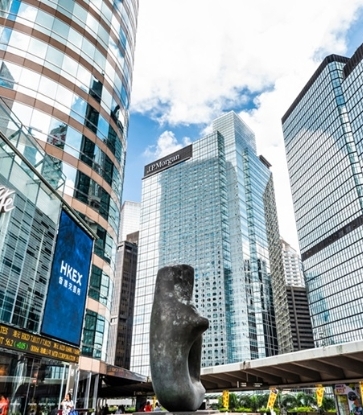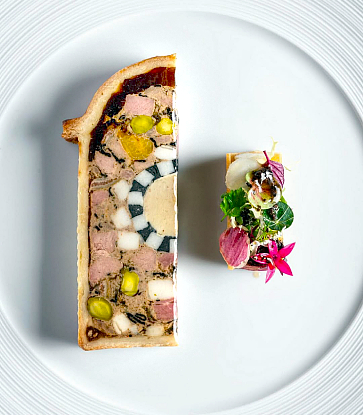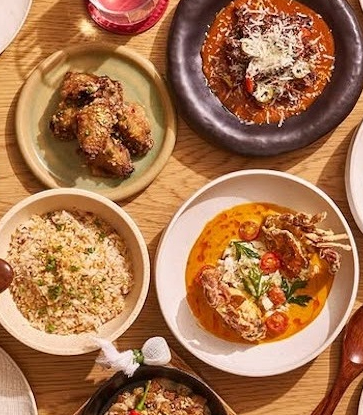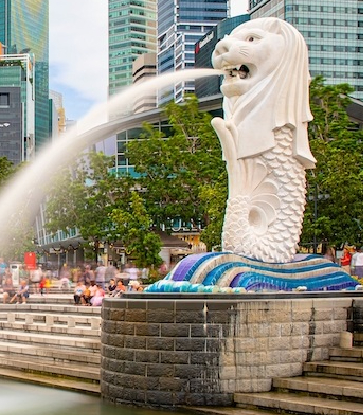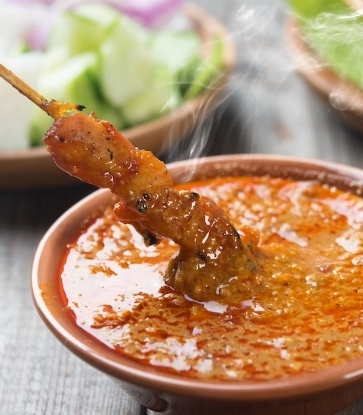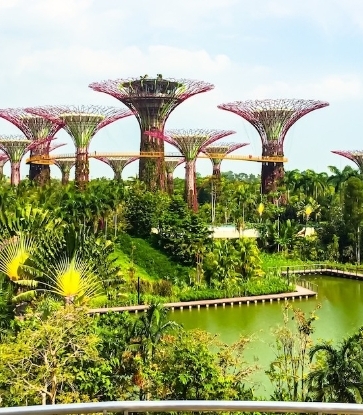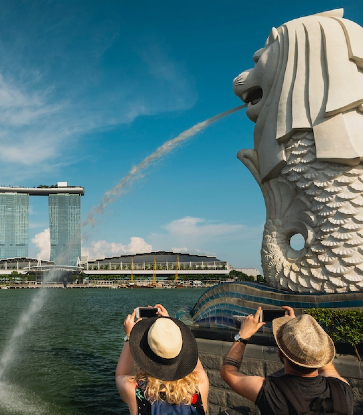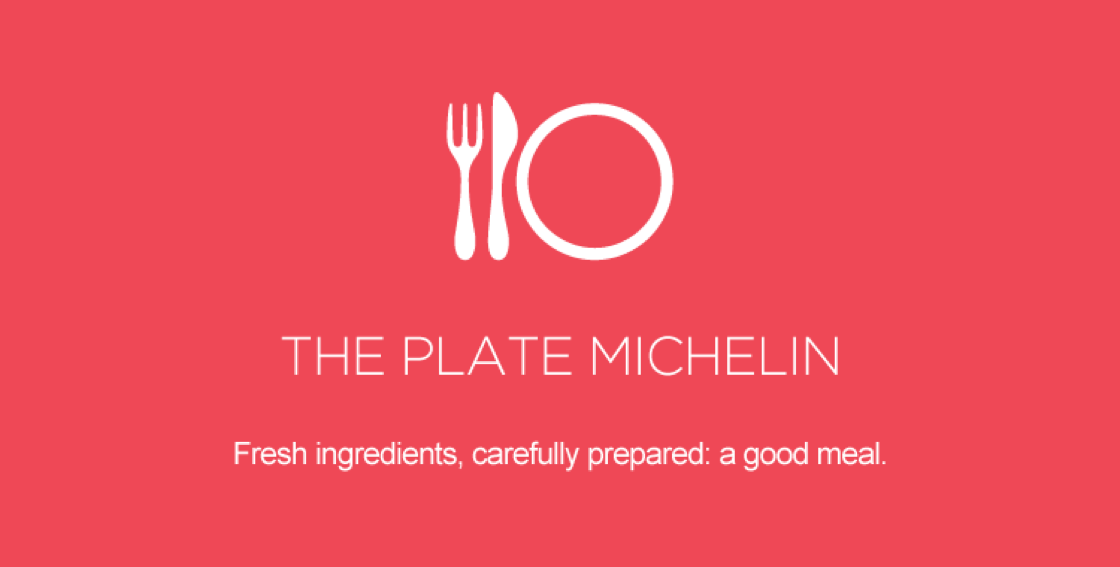
However, the inspectors cover a wider scope of eateries, which are also listed in the red guide with the MICHELIN Plate accolade. First introduced in the 2016 edition of the MICHELIN Guide Paris, the Plate, or L’assiette in French, represents “Fresh ingredients, carefully prepared; a good meal”. The accolade is represented by the symbol of a fork and knife next to a plate.

1. Cure
This bistronomic addition to the neighbourhood's expansive repertoire of eateries and bars boasts a casual and bustling vibe, an open kitchen and paintings by local artists. The Irish owner-chef champions a root-to-stem concept, whereby scraps and trimmings are put to good use on the plate. The seasonal menu is crafted with hand-picked local and Irish ingredients such as the must-try home cured salmon. Attentive and warm service is also spot-on.
RELATED: Breathing New Life Into Food Waste

2. Ibid
Lawyer-turned-chef Woo, the first winner of a popular TV cooking show, opened this restaurant in a remodelled shophouse to showcase his modern French cooking, informed by Chinese traditions and Nanyang twists. His young kitchen team, with Chinese, Western and Japanese culinary backgrounds, contributes to the varied and exciting menu. The chef aims to dig deeper into Chinese food culture, and may explore the use of herbal medicine in his dishes.
RELATED: First Look: Restaurant Ibid

3. Il Cielo
Perched on the poolside, this 35-seater with a panoramic view serves creative Italian food with Japanese touches. The Aomori-born chef Sasaki is passionate about giving European cuisine a new twist with the flavours from his home town. He experimented for two years to craft spaghetti with just the right bite using a ramen machine. Try it with Hokkaido sea urchin, bottarga and yuzu zest for a balance of rich ocean brininess and aromatic citrus.
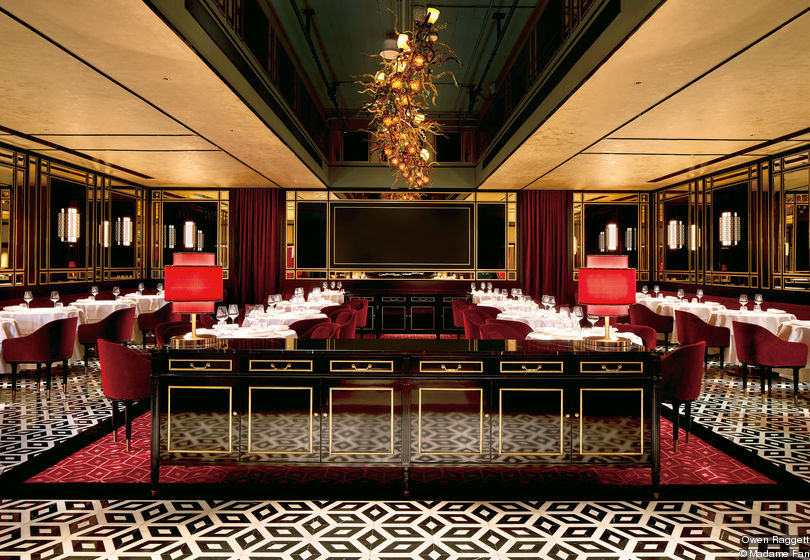
4. Madame Fan
Check your assumptions at the door and be wowed by this uber-chic entertainment lifestyle concept. Housed in the NCO club, a refurbished heritage venue frequented by officers in the post-war era, it features a colourful, colonial design. Dim sum at lunch deserves special mention. Also try the four-treasure soup, wok-fried crispy duck, and black bean-aubergine-tofu claypot. There is a nightly DJ as well as a live band on Friday and Saturday nights.
RELATED: First Look: Madame Fan

5. Min Jiang At Dempsey
Formerly Min Jiang at One-North, this restaurant relocated to its current home in 2019. Amidst lush greenery, the one-storey colonial structure houses an airy dining room done up in a yellow, gold and green palette, boasting floor-to-ceiling windows, wood details and rattan furniture. The menu is Cantonese and Sichuanese with a touch of finesse and subtlety. Try the old-fashioned roast duck or dim sum. There is also a good choice for vegetarians.

6. Preludio
An evolving dining concept that changes every couple of years, this kitchen makes its debut with "chapter 1 monochrome" that promises to last until 2020. From the décor to food and tableware, there are only two colours - black and white. Depending on their terrain, even wines are classified into these colours. Most ingredients on the menu are imported. The signature Ibérico pork takes almost three days to cook while pasta is made in house daily.
RELATED: When Chefs Become Storytellers

7. The Famous Kitchen
Formerly Changi Teochew Kitchen, this spot was renamed and moved to the existing location in 2009. Though officially a Cantonese restaurant, you can find Teochew, Sichuan, Thai and Singaporean food on the menu. Specialities include lobster braised bee hoon, and steamed fish with preserved vegetables. Also try their salt-baked swimmer crabs shipped in every Monday and Friday. Oenophiles should check out the 40+ whiskies on offer.

Taking over the space formerly occupied by Meta, this grill sports a bar and dimly lit dining room - with seats at a long black marble counter that overlook the open kitchen. Chef-owner Thevar applies his modern training and various Indian spices to the inspired creations. He sources the best ingredients from around the world and his signature tandoori baby lamb is not to be missed. Asian-inspired cocktails complement the cooking nicely.

9. Esora
Esora means 'painting in the sky' in Japanese. Both the pale timber interior and food are inspired by its lyrical and serene name, apparent in the skylight above the main counter and the creative cooking that knows no bounds. Most ingredients are flown in from Japan, including the Yamagata rice in donabe, claypot rice with seasonal ingredients, as well as the aged, marinated and grilled kinmedai. Sit at the counter to interact with the chefs.

Settled into its new location in a heritage building, this sushiya brings Tsukiji-raised, chef Hashida. His close connections with suppliers explain why the kitchen always manages to lay their hands on the best seafood from Tokyo, Hokkaido and Kyushu. Apart from his own rice mix and aged vinegar blend, the menu features many inherited family recipes. Try the famous stewed ankimo, matched with the chef's own sake label from Ishikawa prefecture.

11. Ushidoki Wagyu Kaiseki
This chef puts a new spin on classic kaiseki and applies a head-to-tail concept to his wagyu set. The latter uses exclusive Ozaki beef from Miyazaki, unavailable elsewhere in Singapore. These hormone-free cows are fed with seaweed and fermented wheat so that the beef packs intense flavour. The signature sukiyaki is made from a stock originally created when the shop first opened, and it simply improves with age. End with homemade Hokkaido ice cream.

12. Yen Yakiniku
Top-notch cuts of Japanese Wagyu dominate this menu with occasional U.S. and Australian offerings. Eschewing the more expensive A5 grade that some find overly greasy, the head chef (who used to work for the famous Da-Wan in Taiwan) prefers A4 beef for a balance of fat and meat. He also recommends oyster blade, ox tongue with grated onion, and Carabineros shrimp done two ways - all grilled to perfection by the chefs in front of your counter seat.



